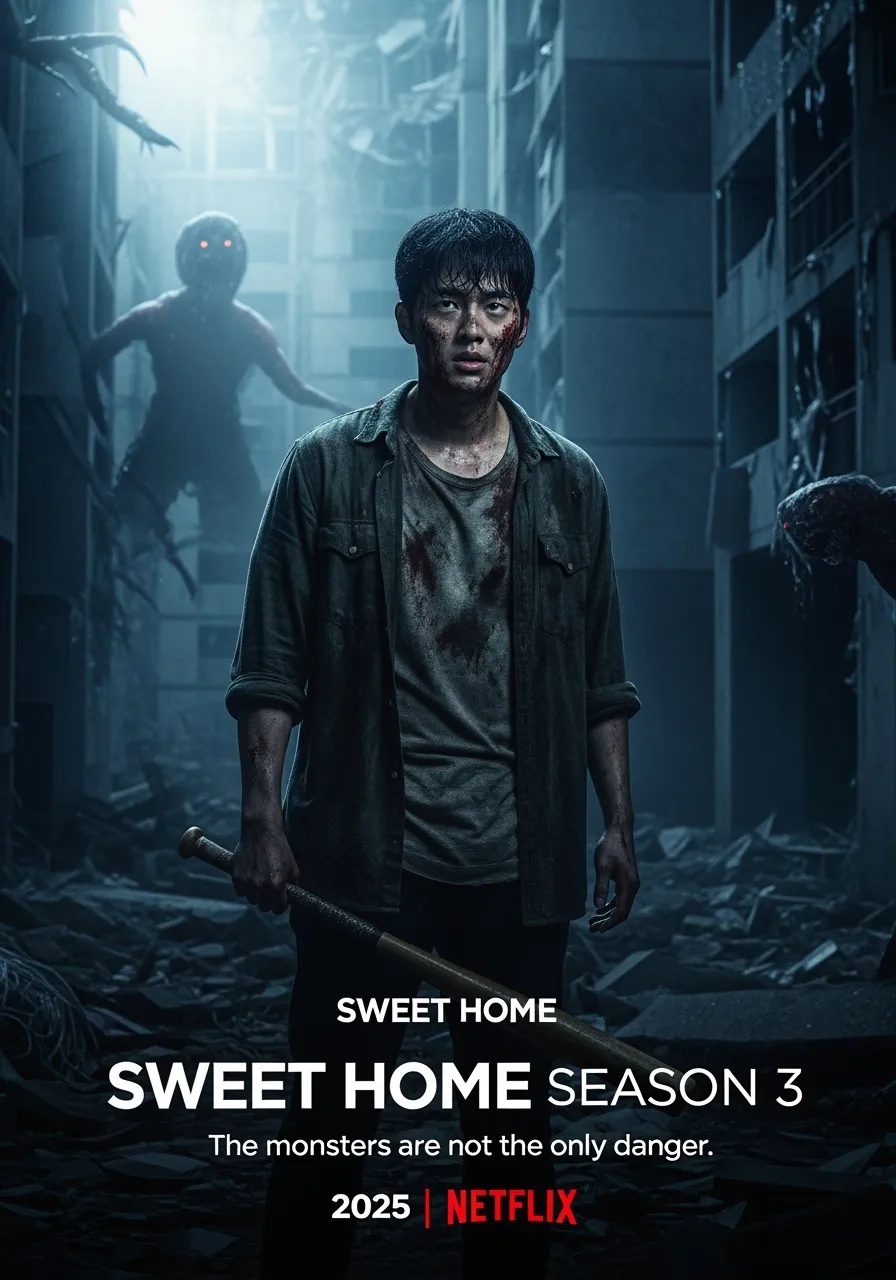Director Christopher Smith (Creep, Severance) delivers an ambitious, cerebral horror-thriller in Triangle (2009), a film that begins like a typical supernatural mystery and then takes an abrupt, disorienting turn into psychological purgatory, temporal loops, and existential horror. What at first appears to be a haunted boat story gradually evolves into something far more complex—and unsettling.
🌀 Plot Overview: Adrift in Time, Trapped by Guilt
The film follows Jess (Melissa George), a young mother who joins a group of friends for a day of sailing. When a freak electrical storm capsizes their yacht, they are rescued by a seemingly abandoned ocean liner—the eerie and anachronistic Aeolus. But the real nightmare begins once they step aboard.
Jess begins to experience strange déjà vu, shadows of herself, and violent encounters that suggest something is horribly wrong with time. As the story unfolds, it becomes clear that the characters are trapped in a looping reality, reliving versions of the same events with increasingly dire consequences.
The film borrows its title from the Bermuda Triangle and the myth of Sisyphus, and both references are thematically essential. This isn’t just a thriller—it’s a metaphysical puzzle about guilt, fate, and punishment.
🎭 Performance: Melissa George’s Breakout Role
At the center of this nightmarish spiral is Melissa George, who delivers a gripping, emotionally complex performance. As Jess, she moves convincingly between confusion, terror, and gradual realization. Her portrayal anchors the film and adds genuine emotional weight to what could have been a purely cerebral exercise.
George manages to make each iteration of Jess feel subtly different, even as the film loops back on itself. By the end, it’s clear this is her story—and her prison.

🎥 Direction, Editing, and Cinematic Craft
Smith’s direction is masterfully restrained. The film’s structure is meticulously crafted—filled with breadcrumbs that only reveal their significance on a second (or third) viewing. Every object, every line of dialogue, and every visual cue has a purpose. The use of repetition, changing perspectives, and shifting identities creates an escalating sense of disorientation and inevitability.
The editing by Stuart Gazzard is especially effective, managing to convey the surreal looping nature of the plot without ever losing the audience in confusion. The cinematography maintains a clinical, eerie tone that mirrors the characters’ detachment from reality.

🧠 Themes: Time, Trauma, and Eternal Recurrence
Triangle is more than a time loop thriller—it’s a psychological allegory. At its core, the film is a meditation on maternal guilt, denial, and the human compulsion to “fix” the past. Jess is not simply stuck in a time loop—she is being punished by it, forced to relive her mistakes in a cycle of suffering she cannot break.
The Aeolus, named after the Greek god of winds, is no mere ship—it’s a purgatory of Jess’s own making. The film mirrors the myth of Sisyphus, eternally pushing the boulder uphill, only to watch it roll back down. Jess is doomed not just to repetition—but to the illusion that she can alter her fate.

🧩 Spoiler-Free but Mind-Bending
Without giving away the major reveals, it’s fair to say Triangle rewards attentive viewers. Clues scattered in early scenes are paid off in later timelines (or earlier ones, depending on how you look at it). It’s a rare film that becomes clearer—and more devastating—with each rewatch.
The final scenes, in particular, reframe the entire movie and confirm that this is not a story with an easy exit. There’s no “solution” to the loop—only recognition of its emotional and moral implications.

🧊 Final Verdict: A Time Loop Masterpiece of Psychological Horror
Triangle is one of the most underrated psychological thrillers of the 2000s—a haunting, genre-defying work that blends sci-fi, horror, and tragedy. It avoids exposition dumps, trusts its audience, and burrows deep into the consequences of guilt and denial.
It’s not a film for everyone—it’s emotionally draining and intellectually demanding—but for those who appreciate narrative complexity and existential dread, Triangle is a must-watch.
Rating: ★★★★★ 4.8/5
A chilling, intricately constructed descent into time, trauma, and punishment. You don’t watch Triangle—you fall into it.
-1754320139-q80.webp)

-1740282288-q80.webp)
-1748427036-q80.webp)
